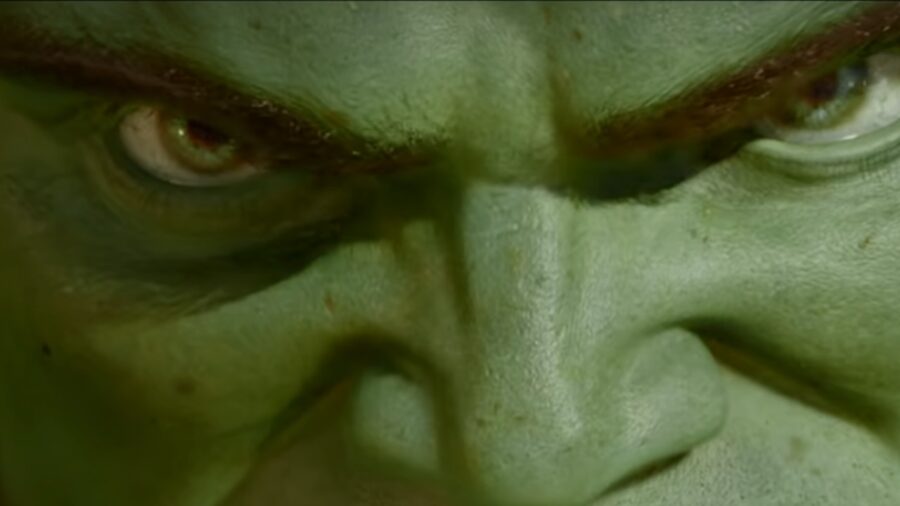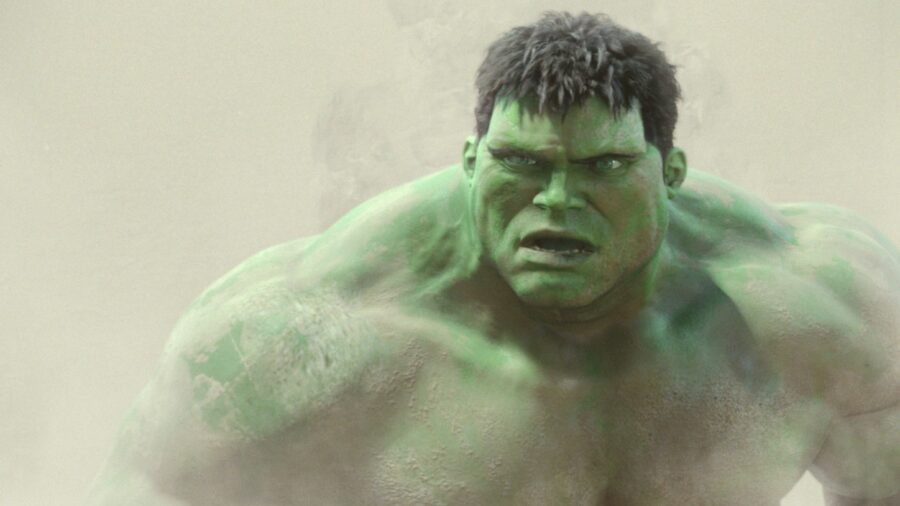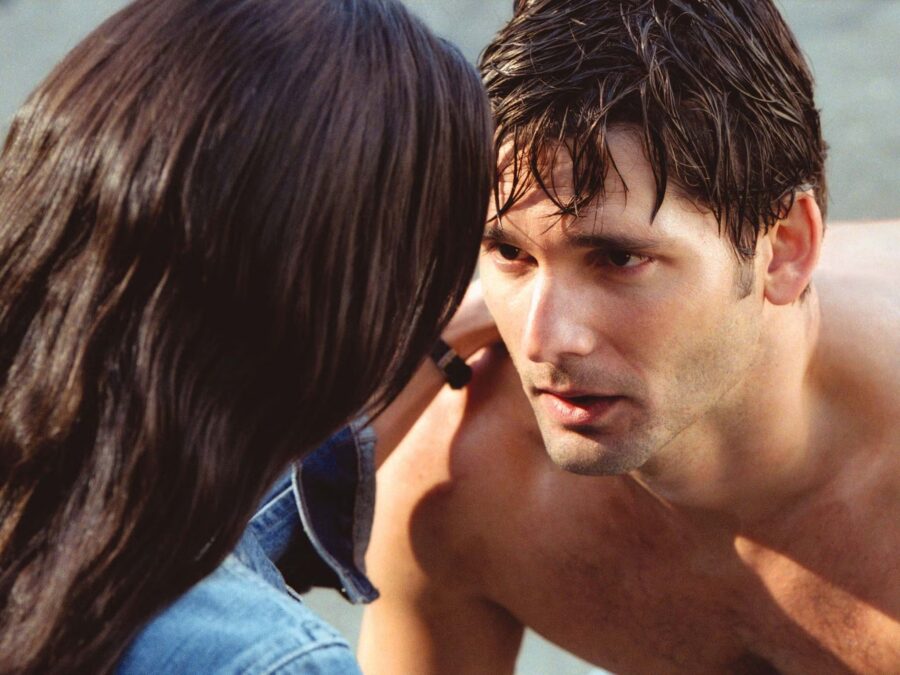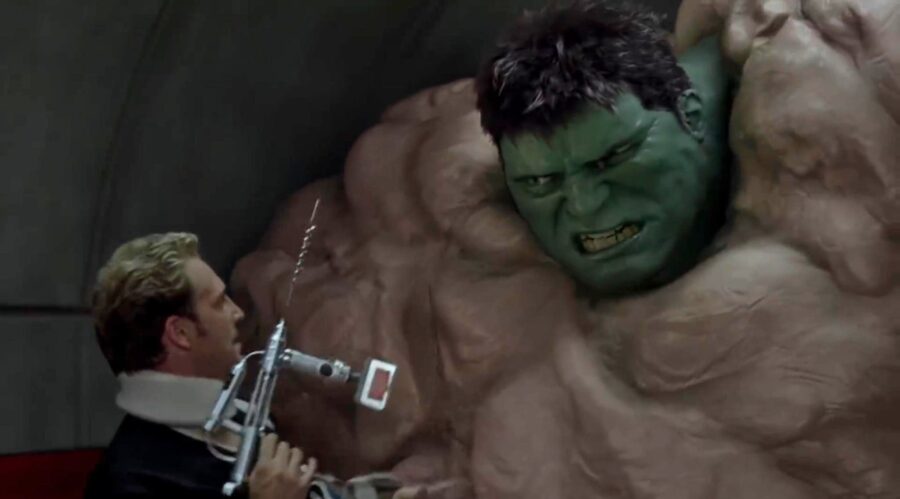The Superhero Movie On Netflix Fans Are Still Arguing About Today

In the early 2000s, the superhero genre was gradually gaining traction, with a handful of successful adaptations heralding a prosperous era for comic book movies. Among these was the 2003 film Hulk, a cinematic representation of the beloved Marvel Comics character. The movie, which is currently streaming on Netflix, was released half a decade before the birth of the Marvel Cinematic Universe in 2008, solidifying its position as a precursor to the superhero revolution.
Ang Lee’s Hulk is streaming on Netflix.
In Hulk, the story revolves around a brilliant scientist, Bruce Banner, who, following an accident in his lab involving gamma radiation, finds himself transforming into a massive green behemoth known as the Hulk whenever he experiences intense anger or stress. The accidental exposure to gamma radiation intermingles with a unique genetic code he inherited from his father, exacerbating Banner’s situation.
The transformation unleashes his suppressed rage, an emotional turmoil embedded by a troubled familial past, most notably issues with his father who has his own dark and complicated history with scientific experimentation.
As Bruce Banner grapples with his new reality, the military learns of his unique abilities and seeks to harness his Hulk power for their own purposes, pushing him further into a life of chaos and isolation. Simultaneously, his father resurfaces with malicious intent, further escalating the conflict.

The interplay of familial strife and the unyielding chase by the military orchestrates a complex quandary for Banner, crafting a narrative steeped in tragedy, the quest for identity, and the enduring struggle between the human and the monster within.
Director Ang Lee, renowned for his visionary approach to storytelling, introduced a distinctive and artistic sensibility to Hulk. His prior cinematic accomplishments, exemplified by works like Crouching Tiger, Hidden Dragon, had firmly established him as a filmmaker with the ability to seamlessly weave artistic elements into action-packed narratives.
Furthermore, the cast, featuring the talents of Eric Bana as Bruce Banner/The Hulk, Jennifer Connelly as Betty Ross, and Nick Nolte as David Banner, added depth and richness to the project, enhancing the film’s intricate tapestry with their compelling performances.
Hulk garnered a divided reception, with critics and audiences offering mixed reviews.
Despite the considerable anticipation surrounding Hulk prior to its release, the film had a moderate box office performance, earning approximately $245 million globally. While it managed to recoup its production budget of $137 million, marketing expenses and the high expectations placed upon the film made it a somewhat underwhelming outcome. In the United States, the movie grossed around $132 million, and it added another $113 million from international markets, emphasizing its mixed financial success.

Hulk garnered a divided reception, with critics and audiences offering mixed reviews. While some appreciated the film’s bold examination of the character’s psychological and emotional struggles, others deemed it excessively cerebral for a superhero flick. Critics lauded the impressive visual effects, particularly the transformation sequences, but were critical of pacing issues and certain narrative decisions.
There is a significant point of contention among fans regarding Hulk’s departure from the traditional superhero narrative style. Ang Lee’s artistic direction, characterized by his utilization of comic book panel layouts and visual motifs, was considered a bold departure that didn’t connect with all audiences.
In retrospect, Hulk holds a distinctive place in the history of superhero cinema, both as an early foray into the genre and as a source of ongoing discussion and debate among fans and critics.
While some viewers appreciated the film’s efforts to delve into the character’s psyche, others longed for more action-oriented sequences.
The recasting of Bruce Banner in the 2008 film The Incredible Hulk, with Edward Norton taking over from Eric Bana, also sparked a major debate among fans. This transition marked a strategic alignment with the emerging aesthetic of the Marvel Cinematic Universe, steering towards a lighter, action-driven narrative contrary to the introspective tone of the 2003 film.

Despite the wide acclaim for Norton’s portrayal, a portion of fans remain in favor of Bana’s continuation, cherishing the intricate depth he contributed to the character’s multifaceted persona.
In retrospect, Hulk holds a distinctive place in the history of superhero cinema, both as an early foray into the genre and as a source of ongoing discussion and debate among fans and critics. Its boldness in exploring complex psychological themes and its stylistic experimentation laid the groundwork for future superhero films, contributing to the genre’s evolution into the vibrant and diverse landscape we see today. If you haven’t had the chance to watch this film or are interested in revisiting it, you can stream it on Netflix.









